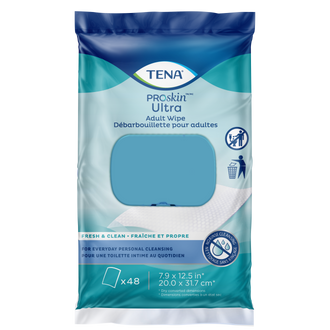Jul 23, 2024
Menopause could bring unexpected weight gain because of changes in hormone levels,1 and is a common symptom of menopause. This guide looks into why those extra pounds seem to appear overnight and, more importantly, how to combat them. Consider this your go-to resource for navigating menopause with more confidence and less stress.
Why Does Weight Gain Happen During Menopause?
Menopause is a significant transition in a woman’s life, marking the end of the menstrual cycle. This change typically happens in the mid-40s to mid-50s, but it can be different from person to person.2
Curious about getting ready for menopause? This article will give you everything you need to know about preparing for menopause.
Hormone Changes
During menopause, your body experiences major hormonal shifts, particularly a drop in estrogen levels.1 As estrogen levels decrease, your metabolism may slow down, leading to increased body fat and weight gain, often around the stomach.1 And on top of that, the hormonal changes of menopause have been linked with incontinence.2
Lifestyle Changes
Lifestyle changes often happen together with the start of menopause.1 Menopause weight gain can also result from other factors including eating an unhealthy diet and getting little sleep.3
Research also shows that people who don't get enough sleep tend to eat and drink more calories and to snack more than those who get their solid 8 hours.3
How to Lose Belly Fat During and After Menopause
Managing and reducing belly fat during and after menopause can be challenging, but it's entirely possible with the right strategies. Here’s how:
Can Hormone Therapy Help Control Weight Gain?
Hormone Replacement Therapy (HRT) is commonly used to ease hot flashes and may also help shift fat away from the belly.3 HRT may also improve your sleep, which in turn could support healthier lifestyle habits and can help manage weight.3
It’s important to consider the risks to HRT. Some risks include a small but increased risk of breast cancer, heart attack and stroke.4 Regardless, while HRT may not be solely responsible for weight loss, when it is paired with eating healthy and regular exercise, it could help you to manage your weight.3,5
Diet for Managing Menopausal Abdominal Fat
When it comes to managing weight gain during menopause, one standout option is following the Mediterranean diet.5 This approach isn't just about shedding pounds—it's a powerhouse for your overall health.
Research highlights the benefits of the Mediterranean diet as lowering the risk of metabolic syndrome, osteoporosis, dementia, and heart disease. Plus, it's great for your gut health, which can significantly affect digestion during menopause.5
Think of the Mediterranean diet as packed full of fresh, wholesome foods.5 It's all about loading up on fruits, veggies, whole grains that are high in fiber, and healthy fats like olive oil.5 This combo not only provides plenty of fiber and antioxidants but also keeps inflammation in check—a key player in staying healthy and maintaining a steady weight during menopause.5
Another possibility is embracing a more plant-based diet.3 Load up on legumes, nuts, soy, and fish, and go easy on the red meats.3 Swap out butter for healthier oils and watch those added sugars—think sweetened drinks and desserts—that can sneak in extra calories.3
Top Exercises to Combat Belly Fat During Menopause
Looking to combat belly fat during menopause? Here are some top exercises that can make a real difference.
Aerobic Exercises6
1. Walking: A brisk walk is a fantastic way to get your heart pumping and burn calories. Aim for at least 30 minutes most days of the week.
2. Jogging or Running: If you're up for it, jogging or running with friends can be excellent for burning calories and improving cardiovascular health.
Resistance/Strength Training
1. Strength Training: Include muscle-strengthening activities that target all the major muscle groups will help in keeping your muscles strong and your metabolism revved up.6
Remember, consistency is key. Aim for at least 150 minutes of moderate-intensity aerobic activity or 75 minutes of vigorous activity each week, plus muscle-strengthening exercises on two or more days.6
The Link Between Sleep Deprivation and Increased Belly Fat
Insomnia is a common symptom of perimenopause.6 Here’s how poor sleep can pile on the pounds and some tips to help you get better shut eye:
How Poor Sleep Packs on Belly Fat
Sleep disturbances are linked to the aging process and metabolic disruption- meaning unwanted changes to how energy is spent, body fat composition, and hormones that control your appetite.1
So, when you don’t get enough sleep, it messes with your hunger hormones.6 You end up with more ghrelin (the hunger hormone) and less leptin (the fullness hormone), making you feel hungry all the time.6
Improving Your Sleep Routine
- Create a Sleep Haven: Make your bedroom a cozy retreat—cool, dark, and quiet.6
- Put away the screens: Put away those screens an hour before you hit the sack. The blue light messes with your sleep hormones. Or consider amber-lensed glasses to counteract blue light or soothing sounds to block out distractions.6
- Chill Out: Wind down with a relaxing routine before bed—read a book, take a warm bath, or do some gentle stretching before getting under the covers.
Additional Lifestyle Changes for Weight Management
Managing weight during menopause often involves more than just diet and exercise alone. Here are some lifestyle tweaks that can really make a difference:
Stress Management Techniques: Let's start with stress—it's a biggie! When stress levels soar, so can the numbers on the scale, especially around your belly. Try a daily walk in the park to help keep stress in check.6
Social Activity and Support: Staying social isn't just fun—it's good for your waistline too! Connecting with friends can lift your spirits and reduce stress, which means making healthy lifestyle changes together.3,6
Reduce Alcohol Consumption: Now, about that glass of wine—it's okay in moderation, but too much can pack on the pounds.3 Cutting back can really help with weight management during menopause.
You Can Beat Belly Fat!
Managing belly fat during menopause is complex but totally doable! Hormones, metabolism changes, and lifestyle habits like diet and exercise all play a role.
Hormone therapy and a Mediterranean-style diet can help balance hormones and support weight management.
Exercise boosts metabolism and burns calories. Good sleep habits, stress management, staying social, and cutting back on alcohol are also crucial.
So, take it step by step, be kind to yourself, and focus on making sustainable changes. Remember, it’s about feeling good inside and out during this phase of life.
If you are experiencing light incontinence during your activities to help manage menopause belly fat, you should try TENA Light Incontinence products for a barely there feel.
References
1. Johnson, S. ‘Best ways to lose weight during menopause’. 2019. Accessed 23 June 2024. Available from: https://www.medicalnewstoday.com/articles/325386
2. World Health Organization. ‘Menopause’. 2022. Accessed 23 June 2024. Available from: https://www.who.int/news-room/fact-sheets/detail/menopause
3. Mayo Clinic. ‘The reality of menopause weight gain’. 2023. Accessed 23 June 2024. Available from: https://www.mayoclinic.org/healthy-lifestyle/womens-health/in-depth/menopause-weight-gain/art-20046058
4. Premier Health. ‘Consider Pros and Cons of Hormone Replacement Therapy’. 2021. Accessed 24 June 2024. Available from: https://www.premierhealth.com/your-health/articles/women's-health-update/consider-pros-and-cons-of-hormone-replacement-therapy
5. UChicagoMedicine. ‘Why am I gaining weight so fast during menopause? And will hormone therapy help?’. 2023. Accessed 23 June 2024. Available from: https://www.uchicagomedicine.org/forefront/womens-health-articles/2023/april/menopause-weight-gain-hormone-therapy
6. Everyday Health. ’12 Ways to Beat Menopausal Belly Fat’. 2022. Accessed 23 June 2024. Available from: https://www.everydayhealth.com/menopause-pictures/ways-to-beat-menopausal-belly-fat.aspx







